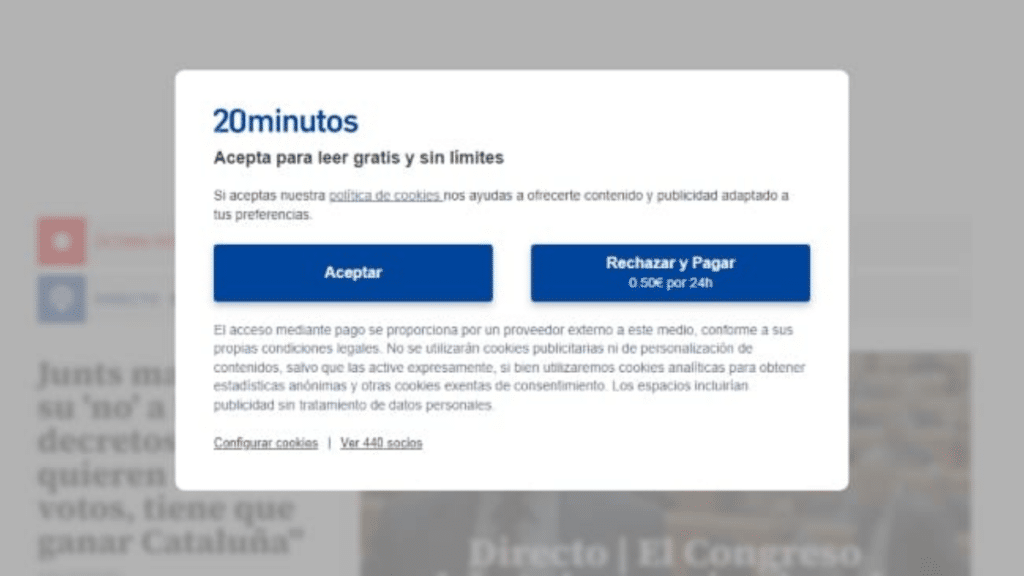This year, digital media are entering a period of uncertainty in relation to cookies, which are those data storage and retrieval devices that until now have been indispensable for publishers to obtain a large part of their advertising revenue.
On the one hand, Google has begun to eliminate third-party cookies in Chrome, the most widely used browser in countries such as Spain. For the time being, it has already blocked them in 1% of its browser users – some 30 million people worldwide. This decision, announced years ago, means that the media will have to adapt to a world without cookies. It will be the return of contextual advertising and the end of a years-long period of hyper-personalised ads.
The Spanish Data Protection Agency updates its Guide on the use of cookies.
In this context, the new Guide on the use of cookies, drawn up by the Spanish Data Protection Agency (AEPD), in collaboration with several associations of the advertising sector: ADIGITAL, AMI, Advertisers, AUTOCONTROL and IAB Spain, comes into force today in Spain. This update of the document was released last July, but it is today when it unfolds its full effects.
The revamped AEPD Guidelines serve to adapt the Spanish market to the European Data Protection Supervisor’s (EDPS) Guidelines 03/2022 on misleading patterns.
Fearing loss of advertising revenue, publishers are installing cookiewalls on their websites.
Basically, what this document says is that the actions of accepting or rejecting cookies have to be presented in a prominent place and format, and both actions have to be at the same level, without making it more complicated to reject them than to accept them.Until now, media outlets have been biased towards accepting cookies, which is now prohibited.Most digital media have waited until the last minute to adapt to the new Guidelines. The fear of publishers is that since it is now easier for users to reject cookies, advertising revenues will be affected. This comes at a time when many publishers are complaining that most of the digital advertising business is going to the big tech companies, such as Meta, TikTok or Google itself.
Most publishers have adapted
Faced with this situation, several of the big digital media have opted to set up what is known as a cookiewall. This means making payment obligatory if you choose to browse without cookies. This has been done by publishers such as El Español, El Confidencial, ElDiario.es, El Debate, 20 Minutos, OKDiario and the Vocento titles.
In these cases, publishers will charge amounts ranging from the 1 euro per month required by OKDiario, the 4 euros per month of Vocento’s newspapers, the 36 euros per year of El Confidencial, the 1 euro per week of ElDiario.es or the 0.5 euros of 20Minutos and El Debate for a day of browsing.
All of these publishers are covered by one of the clauses of the updated AEPD Guide, which states that “there may be certain cases in which not accepting the use of cookies prevents access to the website or the total or partial use of the service, provided that the user is properly informed of this and an alternative, not necessarily free, access to the service is offered without the need to accept the use of cookies”.
For Vocento, the installation of this cookiewall is essential, since “advertisers only invest in those environments where their advertising obtains good results, and this effectiveness is directly related to the ability to personalise campaigns”.
In general, the media consulted by DIRCOMFIDENCIAL say they are ready to adapt today to the new obligations set by the AEPD. If they fail to do so, they face possible fines from the public body for not respecting users’ privacy.
